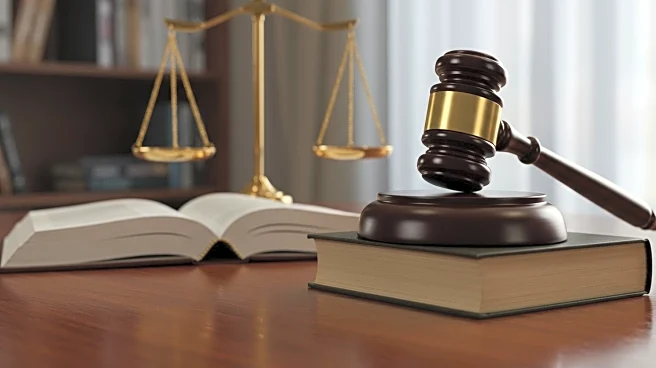What's Happening?
A federal judge in Manhattan has issued an injunction preventing the Trump administration from imposing sanctions on two U.S. law professors, Gabor Rona and Lisa Davis, for their involvement with the International Criminal Court (ICC). The professors had filed a lawsuit against President Trump and other federal officials, challenging a February executive order that threatened civil and criminal penalties for providing educational and advisory services to the ICC. The order was part of a broader effort by the Trump administration to sanction individuals associated with the ICC. U.S. District Judge Jesse M. Furman ruled that the sanctions could not be enforced against the professors, citing First Amendment concerns. The injunction specifically protects the professors from penalties related to their educational and advocacy activities in support of the ICC.
Why It's Important?
This ruling is significant as it underscores the tension between U.S. foreign policy and academic freedom. The decision protects the First Amendment rights of the professors, allowing them to continue their work with the ICC without fear of legal repercussions. This case highlights the broader implications of executive orders on academic and legal professionals who engage in international advocacy. The ruling may set a precedent for future cases where U.S. policies conflict with international legal cooperation, potentially affecting how the U.S. interacts with international bodies like the ICC.
What's Next?
The Trump administration may consider appealing the decision, which could lead to further legal battles over the scope of executive power and its impact on academic freedom. Additionally, this ruling may encourage other legal professionals and academics to challenge similar sanctions or restrictions, potentially leading to more cases that test the limits of executive authority in foreign policy matters.
Beyond the Headlines
The case raises important questions about the balance between national security interests and constitutional rights. It also highlights the role of the judiciary in checking executive power, particularly in areas involving international law and human rights. The outcome of this case could influence future U.S. policies towards international legal institutions and the professionals who work with them.









